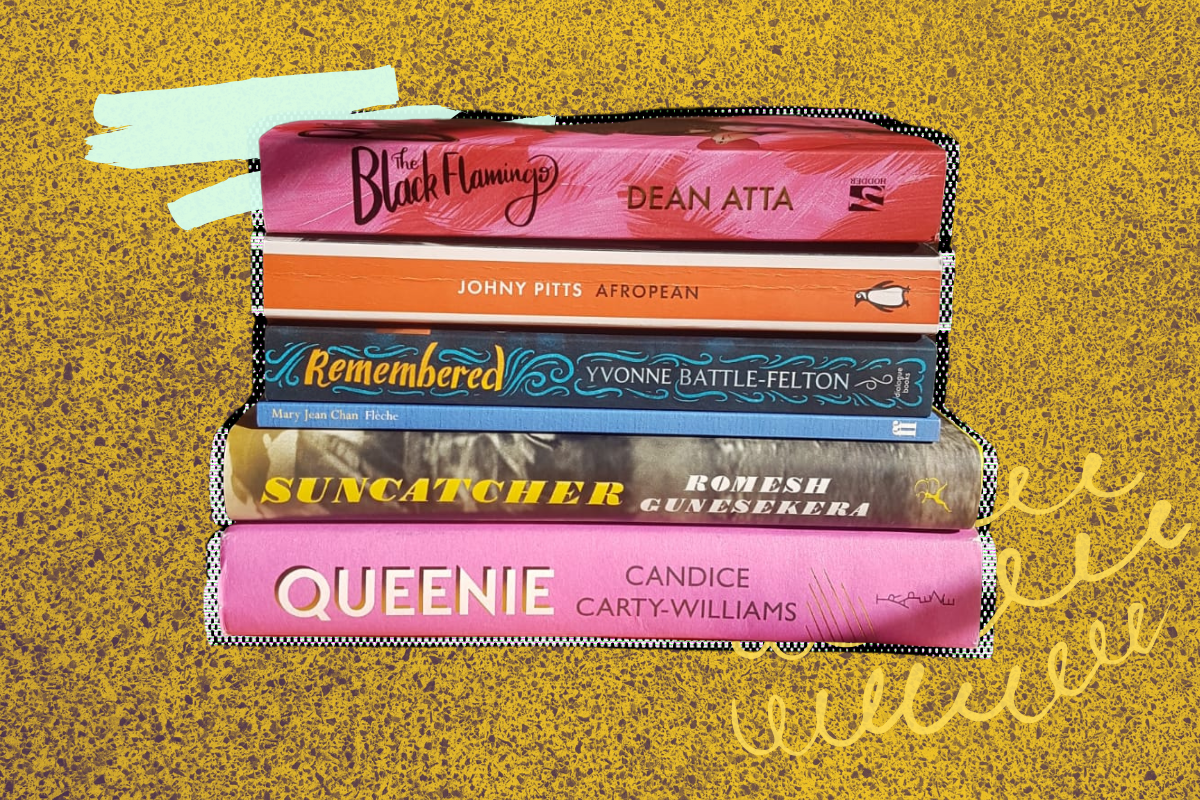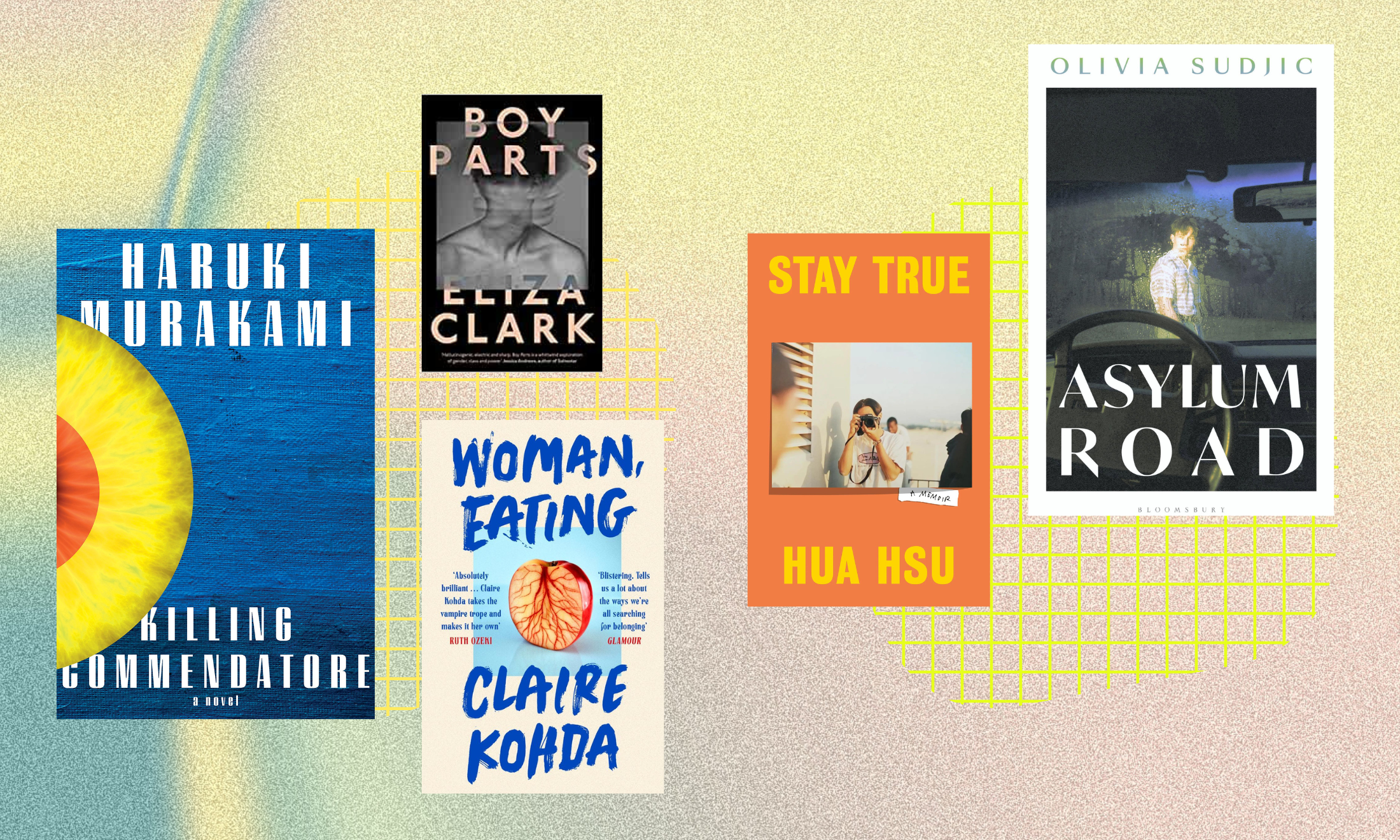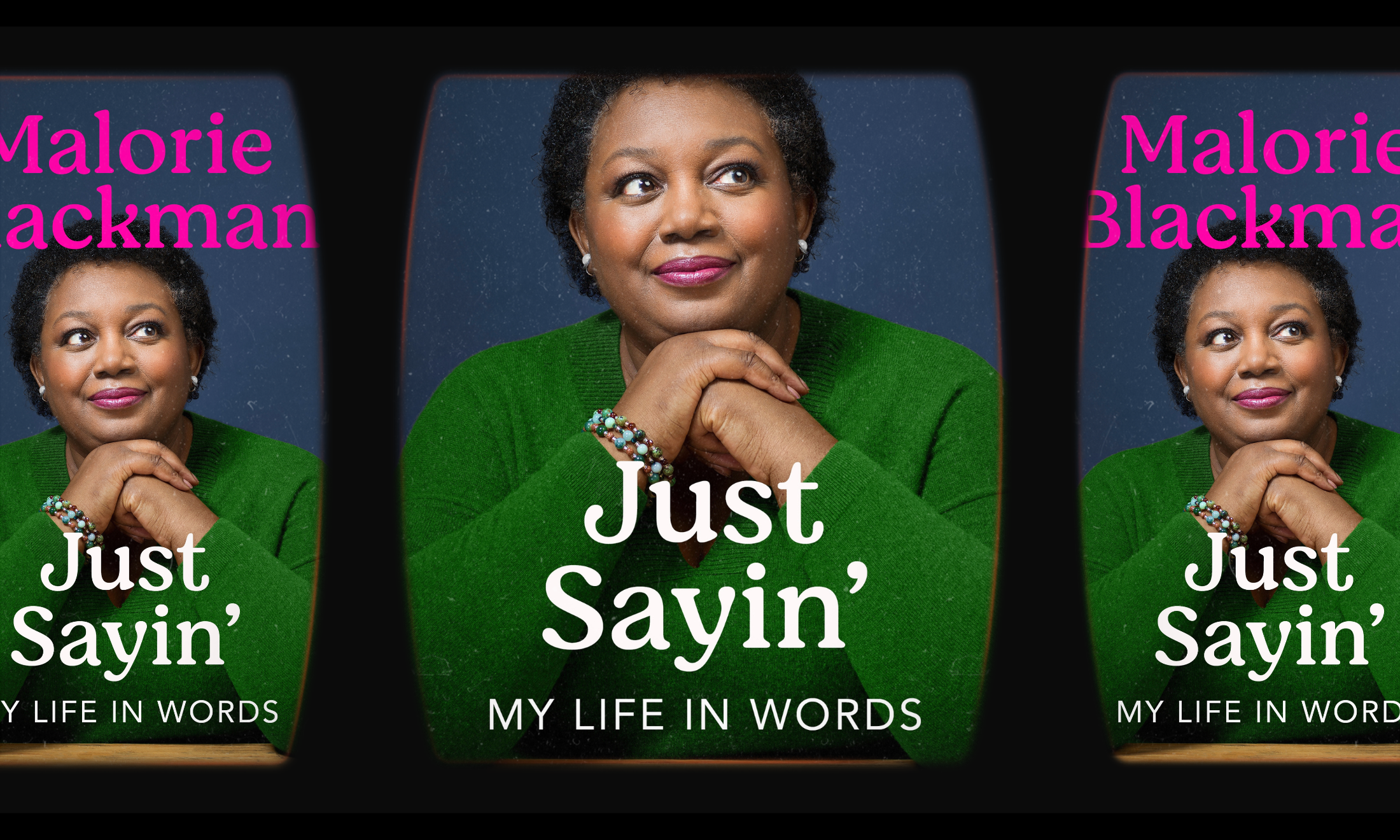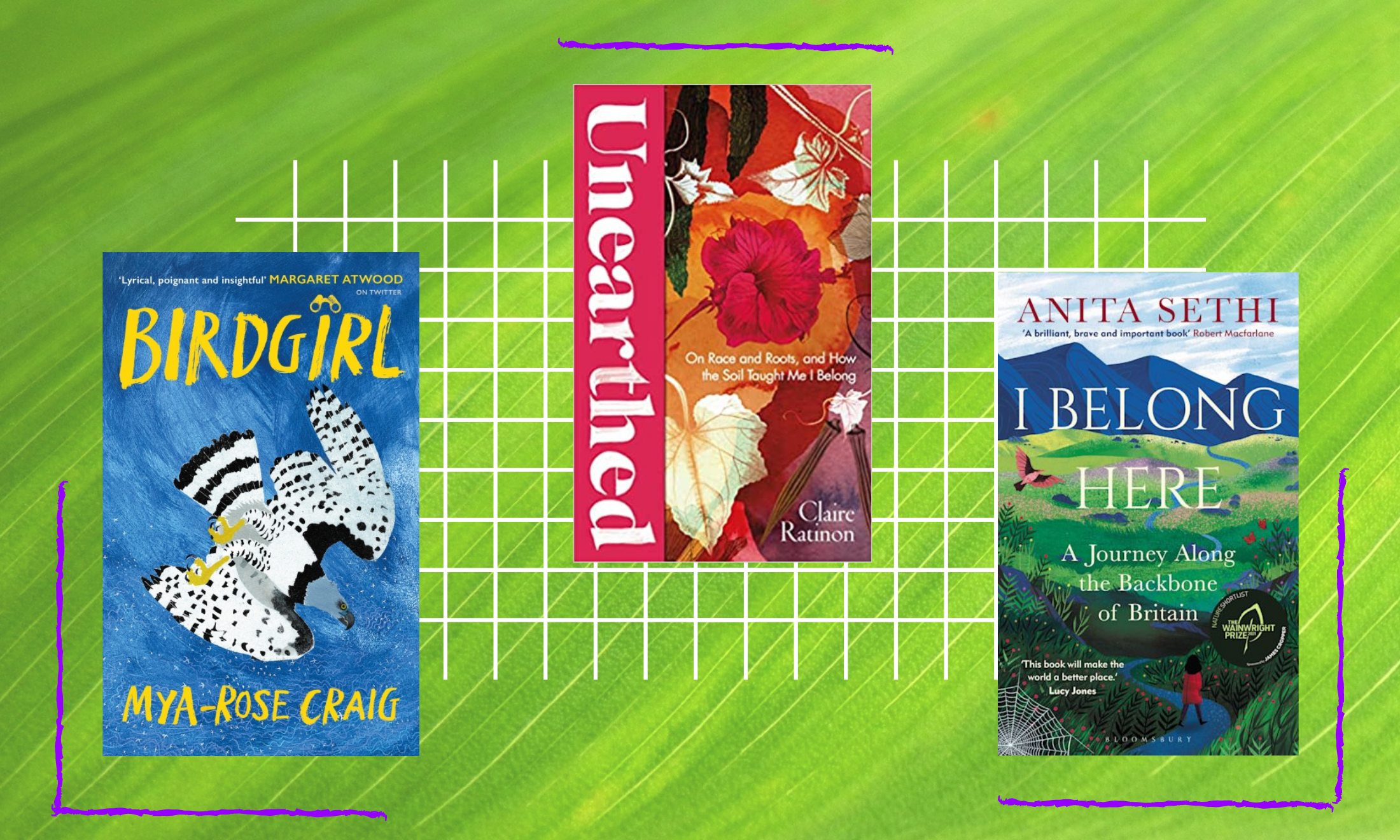
Prepare to cackle, weep, and live for the British PoC authors up for the Jhalak Prize
We devoured these six incredible essential 2020 books and give you a like-for-like low down on what to read afterwards
Leah Cowan
25 May 2020
Now in its fourth year of prize-giving, the Jhalak Prize celebrates books written by British and British-resident writers of colour. The prize was set up by Sunny Singh, Nikesh Shukla and Media Diversified, and works to address what Sunny has referred to as the “ridiculously small” number of books by writers of colour being published in the UK. Only 51 entries were made in the prize’s inaugural year, but the ground is slowly shifting: judges have observed a notable increase in the money put behind producing and marketing books by people of colour (PoC). Seeing Candice Carty-Williams’ iconic cover on tube adverts feels like history in the making; the middle-aged white woman who shouted “Ooh, I loved that book!” as I sat on my front step (in Birmingham) reading Queenie illustrates that publishers do have the power to reshape an industry which has often seen PoC writers as “niche”.
I read, or more accurately, devoured the six books on the Jhalak Prize shortlist. The titles include historical fiction, non-fiction, young adult (YA) fiction, poetry and more, and each of them is a shining example of their genre. I’ve reviewed each book below in ascending order of preference; while it’s difficult to compare books from different genres, there was one which sat with me for a long time after I finished it. I’ll be waiting with baited breath tomorrow to find out who is awarded the top spot: you can join the Jhalak Prize awards ceremony here on Tuesday 26 May at 6.30pm!
6. Remembered by Yvonne Battle-Felton
Remembered is a spell-binding and heart-wrenching tale of the oppression and exploitation of slavery, told through two generations of women: a young girl (Ella Mae) stolen into slavery, and her daughter (Spring) who journeys into a type of freedom. Ella Mae is snatched from the woods and brought to the Walker’s farm as a “breeder”, in order to lift a curse which has seen no babies born on the land for decades – due to the enslaved women’s use of herbal contraception concoctions. Comparisons to the much-loved Beloved by Toni Morrison are apt; Remembered is a ghost story where wisps of the past linger and smoulder as the painful legacy of trauma caused by white supremacy through the transatlantic slave trade flies forward into the present.
The novel, Yvonne Battle-Felton’s debut, makes for painful reading. True to history, the motifs of sexual violence, beatings, lynchings, families being separated and lives torn apart are relentless, and described without euphemism. This unflinching catalogue of black women’s pain had me almost put down the book after fifty pages. However, the novel is rich with layers and dimensions: the ghost of Tempe floats between the pages shifting between the role of sulking spirit and one-woman Greek chorus supplying her own interpretation of the story, and news clippings book end the chapters, providing useful time-stamps as we shift between decades. Ultimately, Yvonne’s novel is a testament to black women’s agency and protest in the face of oppression. Resistance takes many forms: withdrawing reproductivity in the context of forced productivity, walking into the freedom of death from living nightmare, and documenting stories through news clippings and oral histories, above all Remembered reminds us of the power of refusing to be forgotten.
If you liked this, try:
Kindred by Octavia E. Butler
Homegoing by Yaa Gyasi
5. Suncatcher by Romesh Gunesekera
Suncatcher spins out its modest yarn with the slow lingering pace of a languid summer. The novel is set in Sri Lanka in 1964 (then known as Ceylon), against a backdrop of political instability, school closures, economic down-turn, and discrimination and oppression of Tamil communities which in the 1980s would boil over into civil war. The story is told through the eyes of young Kairo, who befriends Jay, a boy from a wealthy family who has an almost obsessive interest in birds and nature. Together, the boys pass the summer building cages, capturing birds and keeping them under lock and key, which becomes a paradoxical motif for the boys’ youthful pursuit of freedom and independence.
The novel is poetically drawn, with observations about the quality of the air, the precise behaviours and flight pattern of local wildlife, and unspoken boyish pangs of envy taking precedence over a blockbuster-style pacy plot. This is what makes Suncatcher a joy to read – the story is not showy or brash, but one of the quiet revolutions of a childhood summer, a true bildungsroman where Kairo learns about himself and those around him in small increments rather than through shocking reveals. The novel is a delicate meditation on the human condition, exploring the ways in which our environment shapes our sense of self, and how personal growth sometimes comes at a cost.
If you like liked this, try:
The Hungry Tide by Amitav Ghosh
A Tale for the Time Being by Ruth Ozeki
4. Flèche by Mary Jean Chan
The inside cover of Mary Jean Chan’s first poetry collection tells us that “flèche” is an offensive technique commonly used in fencing. Mary Jean’s girlhood sport, one which requires proximity but also attack, becomes a motif throughout the collection. The gender-neutral padded fencing uniform is transformed into an armour of liberation behind which the poet can dance with and deflect her own teenage crushes on other girls. The familiar, internal experience of becoming aware of one’s own queerness is a thread which joins many of the poems: ‘Conversation with Fantasy Mother’ is a brilliant fictionalised version of coming out to a parent who accepts and celebrates you in your entirety, and in ‘the five stages’, short staccato phrases map out a journey through the poet’s mother’s ‘denial’ of her queerness, to the gentle embrace of ‘acceptance’ (a never-ending journey) through being seen and acknowledged as a queer person.
Love takes on different shapes and sizes throughout the collection, seamlessly weaving together elements of the personal and political. Mary Jean Chan acknowledges that the collection is written in English. In a two-part poem “Written in a Historically White Space” Mary Jean tells us that “I was brought up in your image”, referencing the legacy of British linguistic imperialism in Hong Kong, where she grew up. At the same time, we learn about the complex love of family who seek to deny us our identities; love for queer community in ‘At the Castro’, which is dedicated to the victims of the 2016 Orlando nightclub shooting, and love for and spoken through food, and its absence in state-imposed famine – through tea, breast milk, fried shrimp, blood and hunger. Harnessing English – a colonial language – for her own means, in Flèche Mary Jean Chan cuts through the dust of history and invites us to shake off our preconceptions in order to honour and celebrate love in the present day.
If you liked this, try:
Night Sky with Exit Wounds by Ocean Vuong
Penguin Modern Poets 3: Your Family, Your Body by Malika Booker, Sharon Olds and Warsan Shire
3. Queenie by Candice Carty-Williams
Sharp-tongued and warm-hearted, confused and confusing— Queenie Jenkins flies in the face of every two-dimensional black woman plonked into a narrative to prop up a white protagonist. Candice Carty-Williams’ breakthrough novel is smart, politicised and carefully-drawn, following Queenie’s journey through the everyday highs and lows of love, family, friendship and self-exploration. The novel is unflinching but compassionate in its portrayal of topics often confined to euphemism and minor storylines such as miscarriage, domestic abuse and sexual violence. On the latter issue, Candice deploys nuance to portray an experience that is unmistakably common: the slippage between consent and coercion, as well as the confusion that emerges when we use our agency to engage in behaviours that aren’t serving us.
Queenie is remarkable because its protagonist is, for twenty-something black girls living in the UK, achingly relatable. We follow Queenie as she struggles to hold down a job where she is overlooked and unappreciated, deals with weird housemates and precarious housing situations, and tries to fend off (with mixed success) a whole host of misogynoir from mediocre men on dating apps. In the novel, racism isn’t a punchline or a few characters sprinkled in to add texture, it’s the beating heart of Queenie’s world, something that can’t be wafted away with some deep breathing (despite her therapist’s best efforts). The power of Candice’s novel is that she demonstrates – through storytelling rather than earnest polemics – that “I can be any type of black girl I wanted to be”.
If you liked this, try:
My Sister, the Serial Killer by Oyinkan Braithwaite
Americanah by Chimamanda Ngozie Adiche
2. Afropean by Johny Pitts
In Afropean, Johny Pitts’ travels in Europe demonstrate how our ancestral histories, which include the violence of colonialism, show up in the present day as structural inequality. Deftly blending heavyweight meditations on social geography and decolonial history, with explorations of diasporic music and literature. Johny’s writing throws up recurring themes in every city he visits: black and migrant communities experiencing poor housing provision, discrimination in the job market, and intense levels of police brutality. The writer excels in joining the dots between incidents such as Grenfell Tower fire which claimed over 70 lives in 2017, and a plane crash in 1992 which struck tower blocks in South East Amsterdam, killing many of the undocumented people who lived there. These observations go some way towards mapping out the blueprint for transnational solidarity as common lived experience.
Afropean is also punctuated with the author’s own black and white photographs, largely shots of black folk on public transport, standing at bus stops, or simply going about their day. The author, like many photographers, takes photos of people who don’t consent to being photographed; the ability to ‘observe’ shows up in his reflection on male privilege as a traveller comprising a brief footnote 250 pages in. I was left thinking about how writers can decolonise travel writing; how the intersecting oppressions add layers of complexity to this question, and whether the act of travel writing always requires a level of looking in from the outside.
If you liked this, try:
A Small Place by Jamaica Kincaid
Afrofeminism and Black Feminism in Europe by Akwugo Emejulu and Francesca Sobande
1. The Black Flamingo by Dean Atta, illustrated by Anshika Khullar
I read a lot of The Black Flamingo through swimming puddles of tears of compassion for my younger self who was bewildered by boxes and binaries but didn’t have the language to articulate it. As Travis Alabanza writes, Dean’s work is: “the book I wish I had when I was younger”, and The Black Flamingo undoubtedly changes the game. Using a carefully-layered collage of verse, text messages, and poems scribbled in the back of exercise books, Dean presents Michael’s coming-of-age story. Michael’s chronicle, which journeys through the highs, lows and wonderful banality of queer blackness, breathes life into so many young lives lived in solitary and silence.
Although marketed at a younger reader, The Black Flamingo offers points of reflection for readers of all ages. From Uncle B’s reaction to being stopped by police when driving Michael to his first term at the University of Brighton (“they interrupt our joy./Our history. Our progress”) to Michael’s teenage crushes (“Is Kieran fit or is he frightening?”), Dean guides us through a nuanced interrogation of complex issues such as structural racism and toxic masculinity. As Michael emerges on the stage as the black flamingo, unapologetically taking up space and speaking his truth, he presents a blueprint for tapping into our authentic selves. The Black Flamingo whispers in our ear, like a trusted friend: “step/out of the shadows and into the spotlight.”
If you liked this, try:
The Stars and the Blackness Between Them by Junauda Petrus
The House on Mango Street by Sandra Cisneros









